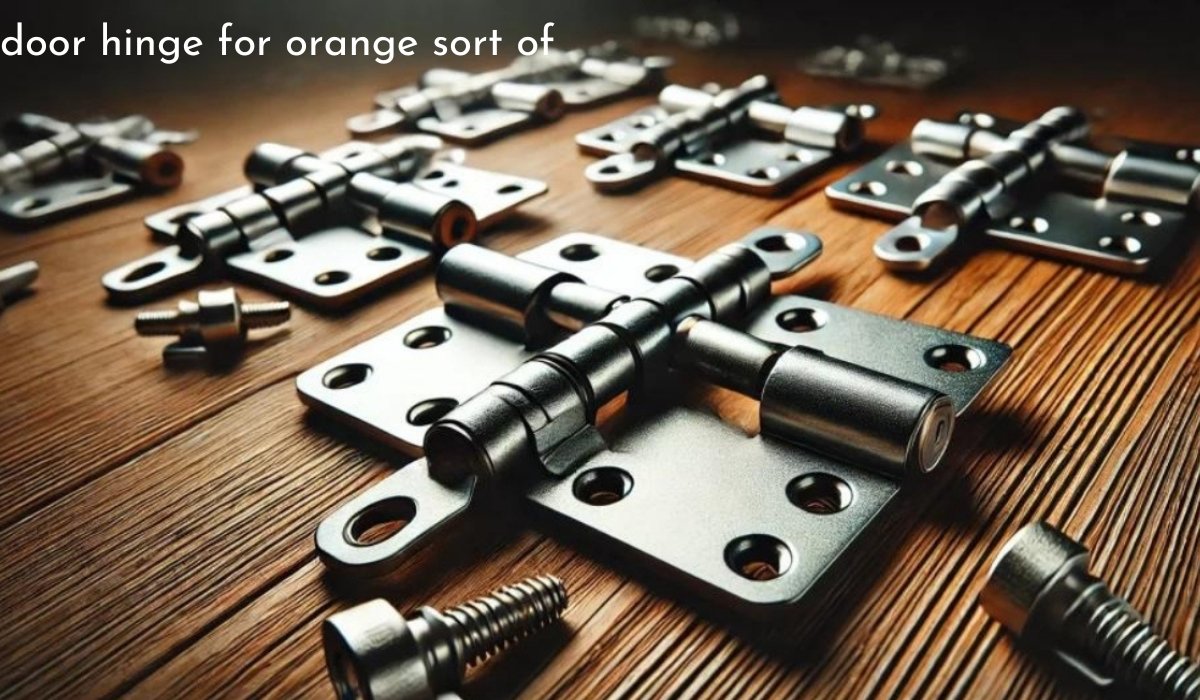Crosswords are a great way to keep your brain sharp, and they can be a lot of fun too. But sometimes, you come across a clue that leaves you scratching your head—like door hinge for orange sort of. Today, we’re going to break down this puzzling clue and explore why the answer is likely “RHYME.”
Whether you’re a seasoned crossword enthusiast or just getting started, this guide will help you understand how to approach tricky clues and incorporate logical reasoning to find the answers.
Understanding the Crossword Clue door hinge for orange sort of
The Anatomy of a Crossword Clue door hinge for orange sort of
Crossword clues come in various types, including straightforward definitions, anagrams, and cryptic hints. The clue door hinge for orange sort of falls into the cryptic category, requiring a bit more thought and creativity to solve.
Initial Breakdown
At first glance, the clue appears to be talking about a physical object—a door hinge—and its connection to the word “orange.” However, the phrase “sort of” suggests that the relationship isn’t straightforward and requires lateral thinking.
The Role of “Sort of”
The phrase “sort of” is a significant hint in crossword puzzles. It usually indicates that the answer is not a direct synonym of the clue but shares a similar characteristic.
Breakdown of clue door hinge for orange sort of
The Physical Object
“Door hinge” is a tangible item that attaches a door to a frame, allowing it to swing open and closed. It consists of two metal plates connected by a pin.
The Color Connection
“For ‘orange'” points to something related to the color orange. However, it’s crucial to remember that the link isn’t direct, as hinted by the phrase “… sort of.”
The Rhyme Theory
When examining the words “door hinge” and “orange,” one common feature stands out—the sound. Both words share the same ending sound, “inge.”
Potential Answer For Door Hinge For Orange Sort Of: RHYME
Why RHYME Fits
The word “rhyme” fits this clue perfectly because it captures the essence of the relationship between “door hinge” and “orange.” While these words don’t share a direct meaning, they do share a phonetic similarity.
Phonetic Similarity
“Door hinge” and “orange” both end with the “inge” sound. This phonetic resemblance makes “rhyme” a fitting answer to the clue.
Indirect Connection
The clue suggests an indirect connection between “door hinge” and “orange.” The word “rhyme” captures this indirect relationship by focusing on the similar sounds rather than meanings.
Exploring the Concept of Rhymes
What is a Rhyme?
A rhyme is a repetition of similar sounding words, occurring at the end of lines in poems or songs. In this case, the repetition of the “inge” sound creates a rhyme between “door hinge” and “orange.”
Types of Rhymes
There are several types of rhymes:
- Perfect Rhyme: Where the sounds match exactly (e.g., cat and hat).
- Slant Rhyme: Where the sounds are similar but not identical (e.g., between and seen).
- Eye Rhyme: Where words look like they should rhyme but don’t sound the same (e.g., love and move).
Rhymes in Crosswords
In crossword puzzles, rhymes can be a clever way to connect seemingly unrelated words. They require solvers to think beyond direct meanings and consider phonetic similarities.
Why Crosswords Use Rhymes
Adding Complexity
Using rhymes in crossword clues adds a layer of complexity, making the puzzle more challenging and engaging.
Encouraging Lateral Thinking
Rhyme-based clues encourage lateral thinking, requiring solvers to think outside the box and make connections based on sound rather than meaning.
Enhancing Enjoyment
For many crossword enthusiasts, the challenge of solving rhyme-based clues adds to the enjoyment of the puzzle, providing a sense of satisfaction when the connection is made.
Examples of Rhyme-Based Clues
Classic Examples
- Clue: “Sound a bell makes” (4 letters) Answer: TOLL
- Clue: “Roof material” (4 letters) Answer: TILE
Modern Examples
- Clue: “Cleaner, for gala” (5 letters) Answer: DRESS
- Clue: “Singer, for dice” (6 letters) Answer: CROONS
Creating Your Own
Try creating your own rhyme-based clues as a fun exercise. Start with two words that share a similar sound and build a clue around their phonetic connection.
How to Approach Rhyme-Based Clues
Look for Sound Patterns
When you encounter a clue that suggests a rhyme, focus on the sound patterns rather than the meanings of the words.
Consider Indirect Connections
Remember that the relationship between the words may not be direct. Think about how they might be connected through sound or other indirect means.
Practice with Examples
Practice solving rhyme-based clues by working through examples and creating your own. The more you practice, the better you’ll become at identifying and solving these types of clues.
Benefits of Solving Crossword Puzzles
Mental Stimulation
Crossword puzzles provide excellent mental stimulation, helping to keep your brain sharp and engaged.
Vocabulary Expansion
Solving crosswords can expand your vocabulary, introducing you to new words and phrases.
Sense of Accomplishment
Completing a challenging crossword puzzle provides a sense of accomplishment and satisfaction.
Stress Relief
For many people, solving crossword puzzles is a relaxing and enjoyable activity that helps to relieve stress.
Tips for Beginners
Start with Easy Puzzles
Begin with simpler puzzles to build your confidence and gradually work your way up to more challenging ones.
Use a Dictionary
Don’t be afraid to use a dictionary or thesaurus to help you with unfamiliar words.
Work with a Friend
Solving puzzles with a friend can be a fun and collaborative way to approach challenging clues.
Practice Regularly
The more you practice, the better you’ll become at solving puzzles. Make it a regular part of your routine.
Advanced Strategies
Look for Patterns
Experienced solvers often look for patterns in the clues and answers, such as common letter combinations or repeated sound patterns.
Think Outside the Box
Don’t be afraid to think creatively and make connections that aren’t immediately obvious.
Keep an Open Mind
Stay open to different possibilities and be willing to revise your answers as you gather more information.
Joining the Crossword Community
Online Forums
Join online forums and communities where crossword enthusiasts share tips, strategies, and puzzle recommendations.
Local Clubs
Look for local crossword clubs or groups where you can meet other solvers and participate in group-solving sessions.
Competitions
Consider entering crossword competitions to test your skills and challenge yourself.
Conclusion
Solving crossword puzzles can be a rewarding and enjoyable activity that challenges your mind and expands your vocabulary. The clue door hinge for orange sort of is a perfect example of how rhymes can add complexity and intrigue to a puzzle. By understanding the connection between “door hinge” and “orange,” you can see why “rhyme” is the fitting answer.
Whether you’re a beginner or an experienced solver, the tips and strategies outlined in this guide will help you approach crossword puzzles with confidence and skill. Keep practicing, stay curious, and enjoy the challenge of cracking even the most perplexing clues.
For those who are passionate about puzzles, joining a crossword community can provide valuable support and camaraderie. Share your experiences, learn from others, and continue to hone your skills.
Ready to take your crossword solving to the next level? Explore our collection of puzzles and resources, and start your next adventure in the world of words today.
You may also like: Cracking the Code of Goads On NYT Crossword Clues










